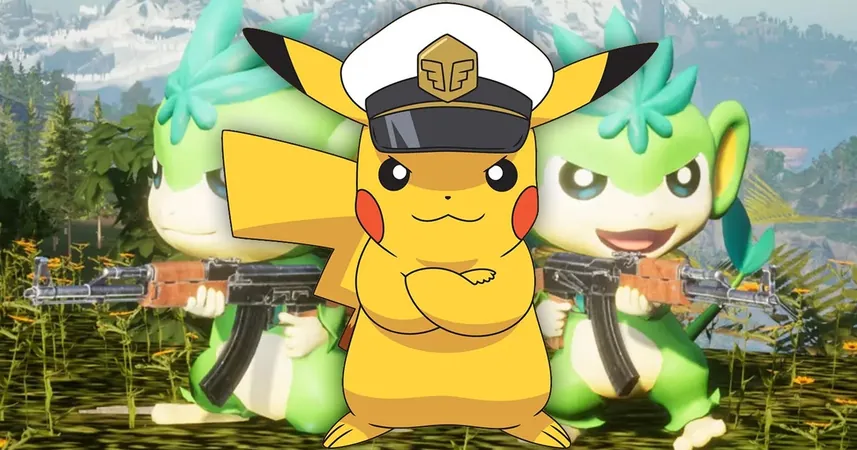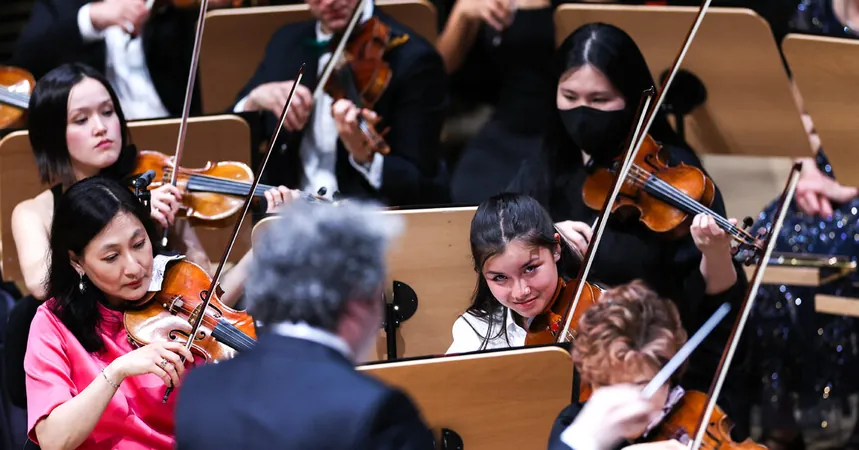
Is Nintendo Targeting Palworld? IP Expert Suggests Intentional Patent Crafting!
2024-09-27
Introduction
In a stunning development in the gaming industry, Nintendo has initiated legal action against Pocketpair, the creators of the popular title Palworld, citing infringement of multiple patent rights. An intellectual property expert has raised eyebrows by claiming it's "exceedingly plausible" that Nintendo designed its patent applications specifically to challenge Palworld.
Nintendo's Legal Action Details
In an analytical piece for Gamesindustry.biz, Andrew Velzen, an associate at law firm MBHB, outlined recent findings related to Nintendo's aggressive legal approach. He noted that key patent applications, highlighted by Japanese attorney Kiyoshi Kurihara, suggest a targeted strategy. These applications encompass various mechanics related to catching and riding characters in-game, including "combat characters," "airborne rideable characters," and "field characters" that interact with "player characters."
Timeline of Patent Applications
Interestingly, all four of these patent applications were filed as amendments to existing "parent" patents after Palworld's launch, showcasing a tactical timeline that raises suspicions about their intent. Velzen emphasized that Nintendo expedited these applications through Japan's rapid examination procedures, indicating urgency in their legal maneuvers.
US Patent Applications
Moreover, in May 2024, Nintendo submitted two similar patent applications to the United States Patent and Trademark Office, which surfaced after the game's release and subsequent inquiries by The Pokémon Company about potential infringements. The first application revolves around a virtual mechanic where players can throw items or characters, while the second discusses the boarding of objects under player control, notably while airborne. Both US applications have faced rejections; one was deemed ineligible for subject matter, while the other was found obvious.
Expert Analysis
Velzen articulated a compelling argument: "Given the timing and nature of these filings, it's reasonable to assume that Nintendo's intent was to target Palworld directly." He acknowledged, however, that further modifications or arguments will be needed for these patents to succeed.
Response from Pocketpair
While the lawsuit is currently concentrated in Japan, Velzen suggests that if Nintendo's pursuit of litigation proves successful there, the company may seek to file a similar infringement suit in the United States, depending on the fate of the patent applications. In response to the legal challenges, Pocketpair has publicly declared its intent to contest Nintendo’s lawsuit, emphasizing the importance of fostering creativity and innovation within the gaming community. "We were taken aback by the lawsuit and are still assessing the specific patents in question," the developer stated, vowing to advocate for smaller studios against potential intimidation from larger corporations.
Conclusion
This unfolding drama not only highlights Nintendo's stringent protection of its intellectual property but also illuminates the challenging landscape faced by independent game developers. Will Pocketpair successfully combat this legal barrage, or will Nintendo's calculated strategies prevail? Keep an eye on this story as it develops!

 Brasil (PT)
Brasil (PT)
 Canada (EN)
Canada (EN)
 Chile (ES)
Chile (ES)
 España (ES)
España (ES)
 France (FR)
France (FR)
 Hong Kong (EN)
Hong Kong (EN)
 Italia (IT)
Italia (IT)
 日本 (JA)
日本 (JA)
 Magyarország (HU)
Magyarország (HU)
 Norge (NO)
Norge (NO)
 Polska (PL)
Polska (PL)
 Schweiz (DE)
Schweiz (DE)
 Singapore (EN)
Singapore (EN)
 Sverige (SV)
Sverige (SV)
 Suomi (FI)
Suomi (FI)
 Türkiye (TR)
Türkiye (TR)